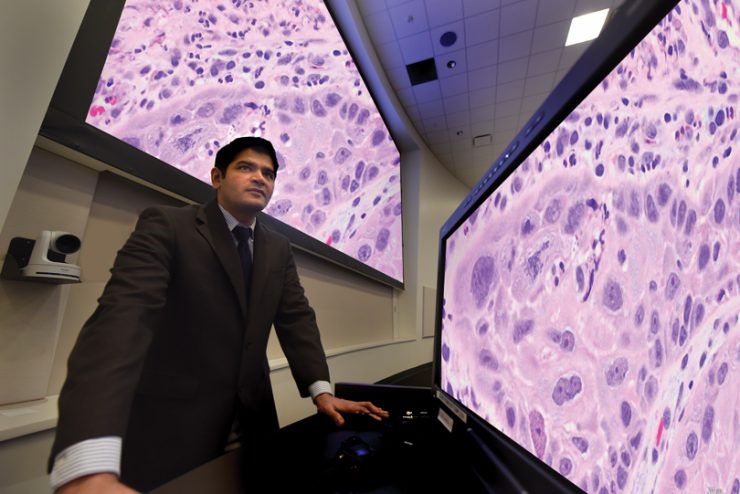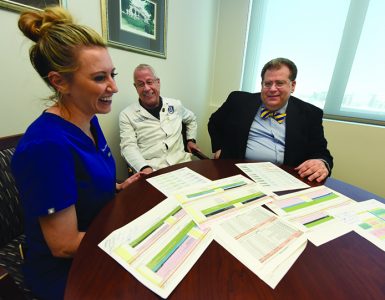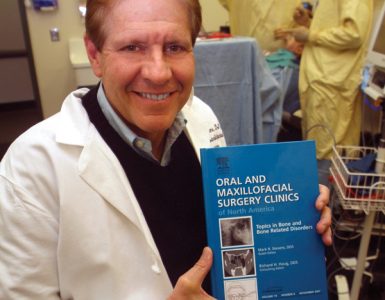Dr. Bhavik Desai speculates that if you tried to guess someone’s age based on the condition of their teeth, you’d have your work cut out for you. Even he would have a tough time.
“Clumping people together based on age might not be appropriate in designing oral health treatment plans,” says Desai, associate professor in the Department of Oral Health and Diagnostic Sciences and Director of the Section of Oral Medicine.
This is particularly true, he notes, of older patients. Typically, dental patients age 65 and older have been categorized as geriatric, “but a lot of people in this age bracket are quite mobile and in relatively good health,” says Desai, who was recently recruited from Tufts University. “People are living longer and healthier, and there are many perfectly healthy people in that age range.”
He plans to study the dental school patient population to categorize their health status based on age.
“Gum disease and tooth decay do become more common with age,” Desai acknowledges, “but factors such as lifestyle and overall health can go a long way toward ensuring a patient can live their whole life with their teeth intact. Our goal is to try to delay the onset of problems as long as possible, and age isn’t necessarily a compounding factor.”
The science is now clear, he says, that conditions such as diabetes and obesity can take a considerable toll on oral health. Likewise, many cancer diagnoses—particularly those requiring chemotherapy and radiation—can severely compromise the teeth and surrounding tissues. Desai, whose oral medicine practice includes treating cancer patients, hopes that the more he learns, the better he can tailor treatment plans to individual needs, regardless of age.
In the meantime, he advises heeding dentistry’s most important message: “Prevention, prevention, prevention,” Desai says. “Nothing beats the importance of home health care.”









